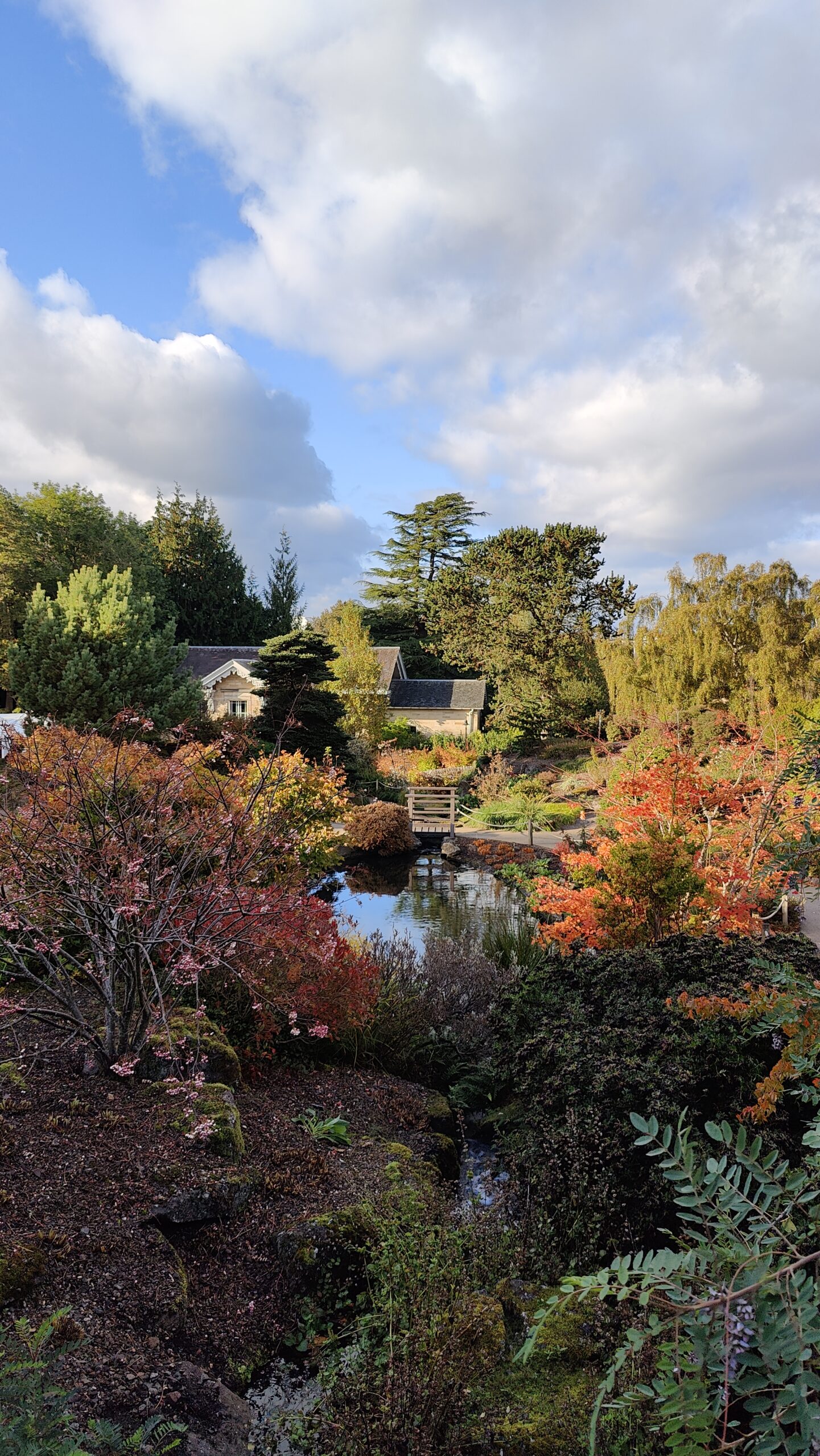Lorna Mitchell, Emma Nicolson
Since its foundation in 1670, the Royal Botanic Garden Edinburgh (RBGE) has engaged with artists in support of its educational and scientific mission; since the 1960’s this has included collaborations with contemporary artists through the exhibition programme at Inverleith House. In recent years, the RBGE arts initiatives have undergone a strategic review and transformation to better align with the institution’s mission and goals, and its responsibilities as a cultural and botanical institute.
In 2023 and 2024, the Getty-funded Growing Networks project, organised by the Fitzwilliam Museum in Cambridge, brought together curators from art galleries, museums and natural history collections in the UK and Europe. Through a series of well-received workshops held in Cambridge, London, Edinburgh and Paris, the initiative began to build interdisciplinary connections between apparently disparate institutions that hold botanical art collections. The workshop also raised a number of questions, including a fundamental one around the definition of botanical art and around the colonial origins of many of the collections.
The Plants on Paper project was inspired by the Growing Networks conversations and our recognition of the important contribution and potential role that the RBGE has to play in informing contemporary debate and research on decolonisation, and revised approaches to engagement with natural history collections. Supported by the Getty Foundation Paper Project, Plants on Paper drew on our art collections to develop much needed knowledge exchange workshops in Edinburgh, bringing together curators and artists from specific originating diaspora communities with the following goals:
- Raise awareness of RBGE’s extraordinary art collection
- Consider ways in which historic natural history collections of works on paper encompass, represent, and safeguard knowledge, exploring the curatorial challenges and generating greater understanding of the collections and their role as a resource to address current cultural and environmental concerns.
- Situate the project within the broader decolonizing practice of museum collections.
- Recognise the game changing potential of digital platforms for both knowledge and care of collections and the opportunity to amend silences and absences from the records.
- Cultural exchange
- Increased visibility of both the host organisation and those involved in the project, positioning them as significant contributors to the international dialogue around works on paper and natural history collections.
We hope the connections made during the project will continue beyond the workshop and lead to ongoing collaborations and lasting collegiate friendships. This publication is, we hope, just the start of things to come.
Acknowledgements
We would like to take this opportunity to express our thanks to the following people:
- Jane Munro and Henrietta Ward at the Fitzwilliam Museum for allowing us to be part of their inspirational Growing Networks project.
- The Getty Foundation for enabling Plants on Paper to happen.
- Sarah Bowen for actually making Plants on Paper happen by organising travel, accommodation, meals and everything else.
The Plants on Paper participants and tutors for bringing their creativity, open minds and enthusiasm to the project.
